As the icy gusts snake through the veins of France, they whisper an unsettling dirge – the echoes of the now-departed prophet Guillaume Faye. His grim forecast of the catastrophic downfall of the multicultural endeavor reverberates through the broken fragments of a once-unified France. The memories of his prescient utterances blend seamlessly with the wailing winds to give voice to the funereal tableau spread before us, a stark reminder of his predictive prowess.
Emmanuel Macron, the beleaguered captain of this vessel in tumultuous waters, found his diplomatic excursion to Germany abruptly upended. He retreated, stalked by the specters of his countless misjudgments and the swelling discord among his people. Macron finds himself ensnared in the turbulent eddy of multiculturalism, precisely the morass that Faye anticipated with such eerie acuity.
Faye, in his sagacious work Archeofuturism, painted a dour portrait of the consequences of such an ill-considered journey into state-mandated disharmony. He articulated a vision of a world overwhelmed by an unending deluge of cultural fragmentation, submerging the West under an avalanche of intermingling heritages and identities. France, in its present state, is a mirror reflecting this somber prophecy.
In a macabre display that could well belong within the pages of a chilling horror tale, the non-White citizens of France, wearied by constantly imagining incessant police brutality, have risen in self-righteous defiance. A grotesque performance plays out as 45,000 police officers seek to quell the burgeoning revolt. The untimely death of young Nahel Merzouk, a life extinguished in its prime by motorcycle cop and former soldier Florian M. in Nanterre, ignited the simmering outrage. The roots of this insatiable fury, however, extend far deeper than the misconduct of one individual, reaching into the very core of a society shattered by the war between the alien and the settled.
Amid this turmoil, a fiery tempest of rebellion erupts, consuming the monolithic symbols of state power and authority. It leaves in its wake hundreds of decimated structures – from symbols of law enforcement and fiscal control to centers of governance and knowledge – reduced to smoldering ruins. Alongside these edifices of order and civilization, thousands of vehicles lie as charred remnants, a testament to the escalating conflict between certain people and the state.
In the spirit of Faye’s admonition from Why We Fight of a multicultural society being an arena of endless conflict, this blaze of defiance leaps over the borders of France, extending its tendrils into the heart of Belgium’s capital, Brussels. Those who orchestrated this cacophonous symphony seem to lose their grasp, their feeble protests against the “inexcusable act” against the backdrop of the security force’s recent abuses ringing hollow.
Emerging from the smoke-shrouded ruins of Macron’s multicultural fever dream, Faye’s steadfast call for cultural homogeneity shines as a beacon in the storm. His vision of a society bound by a shared heritage, harmonized by mutual values, and fortified by aligned cultural identities offers a ray of hope amid this swirling vortex of mayhem. Faye’s profound wisdom lights the way towards harmony and unity, a path strewn not with the jagged debris of enforced diversity, but with the comforting familiarity of cultural affinity.
In the end, it is Faye’s voice that soars above the embers of France’s burning cities. It serves as an intuitive indication that the tranquility and stability of a nation are intimately tied to its cultural homogeneity. This alarm grows louder each day as Macron’s ill-guided policies crumble under the weight of their inherent contradictions.
In The Colonisation of Europe, Faye astutely observed the vital role ethnic homogeneity plays in social peace. As France grapples with the tumultuous unrest, Faye’s insights emerge like a phoenix from the ashes – a potent symbol of cultural homogeneity’s resilience against the destructive force of ethnic chaos. Macron’s legacy, and the destiny of France, precariously teeter on this knife edge, dependent on whether he chooses to learn from these lessons or continues to tread the perilous path of his flawed experiment.
Evoking Faye’s foreboding warning, France stands on the brink. The course it charts now – whether it heeds Faye’s wisdom and embraces unity and shared cultural identity, or persists on its current course of misguided multiculturalism – will shape the future of France. The chapters of history are being penned with each passing moment, and the ink is far from dry.
In these trying times, it is perhaps the realism of Faye’s ideas that captures the essence of the situation. In Prelude to War, he declared, with a clarity that seems unsettling but soothing at the same time, “The key to establishing peace between peoples lies in the implementation of total apartheid.” As France grapples with its current crisis, one cannot help but ponder whether the resonance of these words in today’s socio-political landscape may point towards a path not yet fully considered.
On a sobering note, Faye’s wisdom recalls the haunting narrative of Jean Raspail’s classic dystopian novel The Camp of the Saints, which envisioned the West besieged by an unending tide of immigrants. Raspail’s tale captures the destructive force of multiculturalism, where, in attempting to accommodate everyone, a society ends up disenfranchising its own. Macron’s France, in its current turmoil, appears to be unwittingly echoing this narrative, further highlighting the validity of Faye’s assertions. In the grand theater of history, this act of the play is drawing to a close, and the curtain is about to be drawn. The final scene, however, remains uncertain and will be decided by the choices France makes in the face of this burgeoning crisis.
Faye envisions a world reborn from the blackened wreckage of the egalitarian perversions of our time. In this future world, Europe has united with Russia to form an ethnic empire of the Heartland, stretching from Lisbon to the Russian shore of the Pacific. In addition to this geopolitical revolution, the Faustian spirit has evolved to become an unprecedented synthesis between man, technology and nature, tradition and science, eternal recurrence and titanic frontier transgression, between the primordial old and the ever-new. The Archeofuturist Renaissance has rung in the blood-red New World on top of the slain and gutted one.

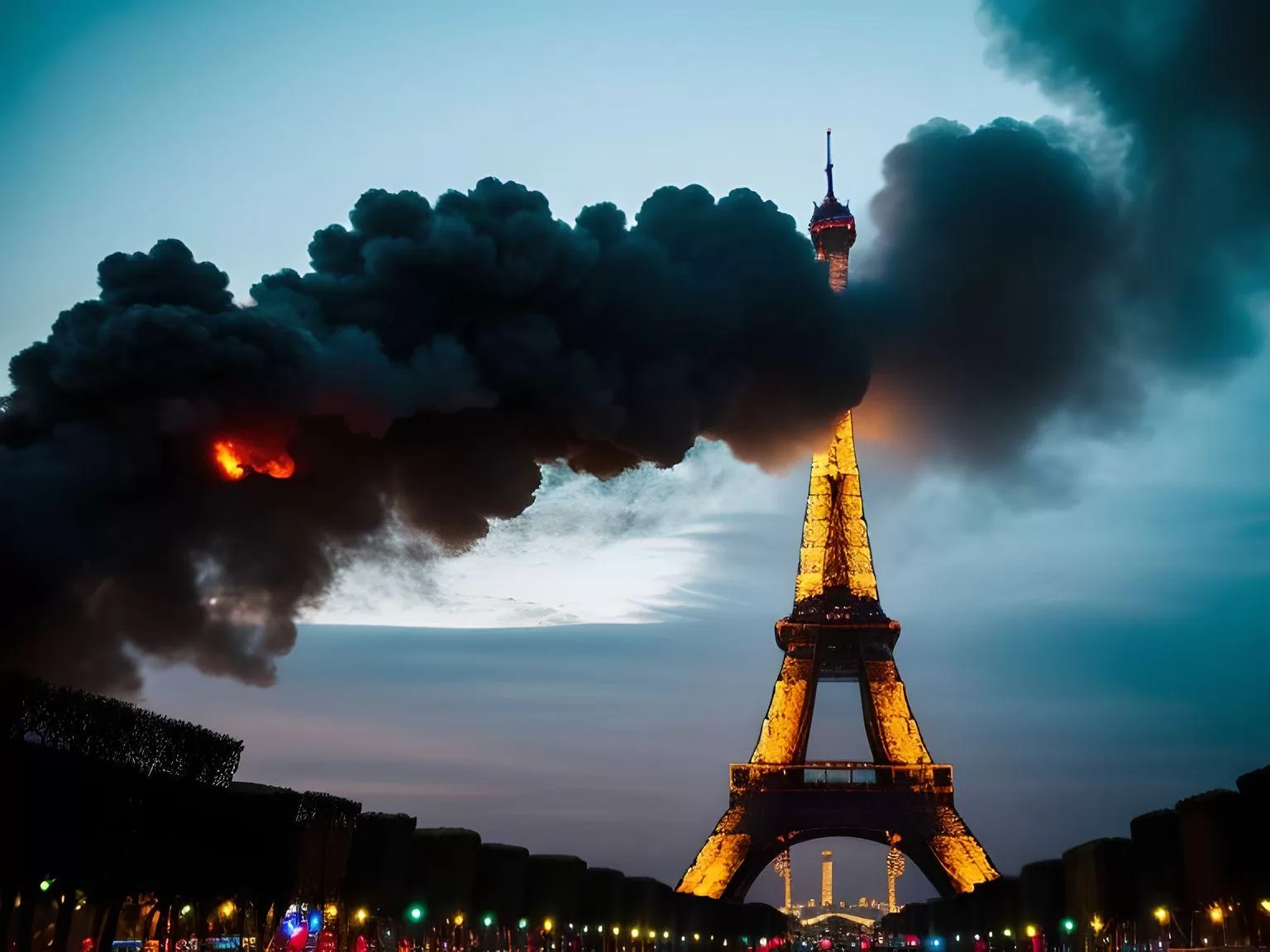



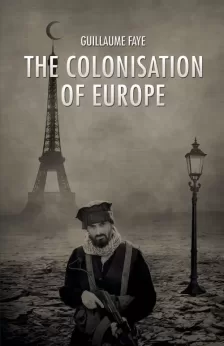
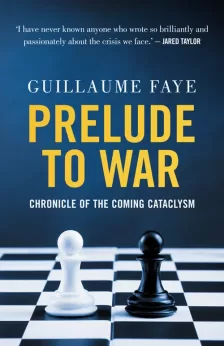
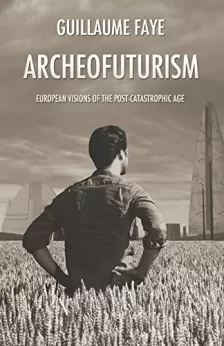
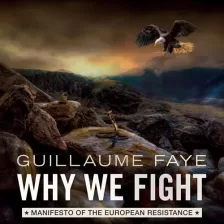
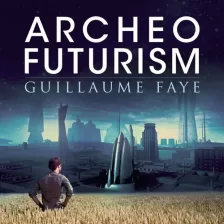
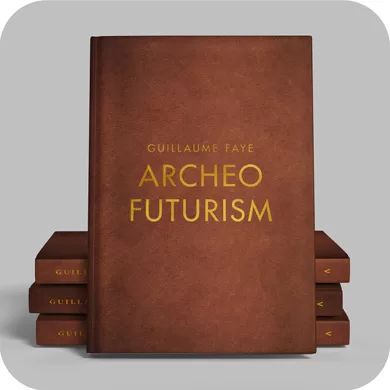
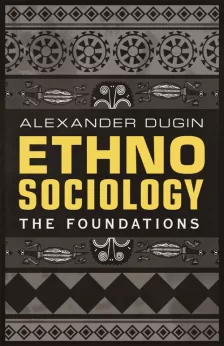

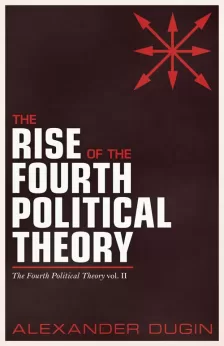

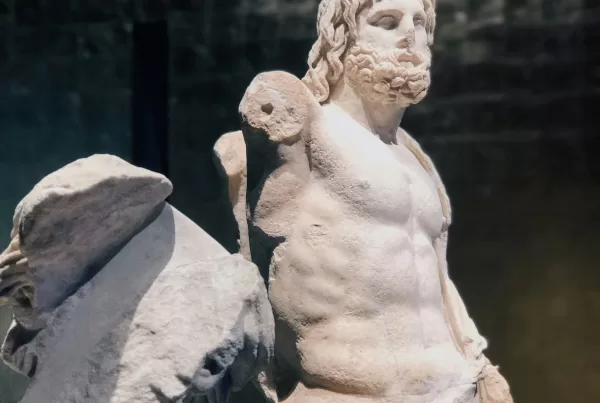
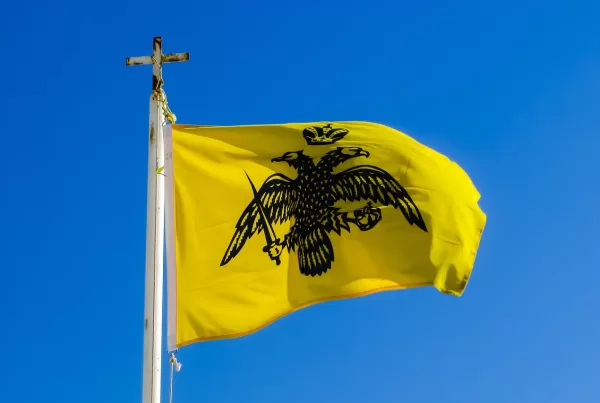
It amazes me that the French can watch the prophesies of Jean Raspail and Guillaume Faye, among others, unfold in real time… and still be confused about what is happening. But alas, surely more of them are waking up.
The riot footage makes it clear what’s happening, and Faye did predict it precisely.
Can you recommend a Raspail book for me?
Civilization is but a shell on an insect. as we burst forth from this shell we will be feasted upon, but we will grow beyond the old shell and take on a new form.
Deep insight!
your article got removed from telegram
Which article?
Telegram censors posts???
Not that I am aware of. I don’t know which article he’s referring to.
Constantin is one of those who is doing the best work carrying on Faye’s vision. A true archeofuturist!
I think Faye anticipated a stronger response from our side, although I have seen some videos of young whites defending their neighborhoods pretty bravely, at least.
Many Wagner stickers are being seen in burning Paris!
I am reading Faye’s Colonization of Europe now. No one seems to mention it much. His take is really prophetic, especially regarding Islam in France. Many of these rioters are open jihadists.
The chaos of French streets and destruction of businesses show why we all need to be able to defend ourselves and our families if push comes to shove. The level of anti-social violence in Paris is stunning. Turning the capital of European high culture into a dangerous cesspit.